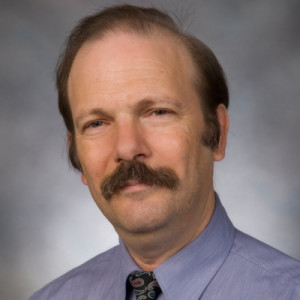 The National Science Foundation (NSF) Directorate for Computer and Information Science and Engineering (CISE) is pleased to announce a distinguished lecture on Wednesday, March 9, 2016 at 2:00pm EST by Dr. Moshe Y. Vardi titled The Automated-Reasoning Revolution: From Theory to Practice and Back. Dr. Vardi is also a confirmed speaker at the Community Community Consortium‘s (CCC’s) Computing Research: Addressing National Priorities and Societal Needs Symposium in May 2016.
The National Science Foundation (NSF) Directorate for Computer and Information Science and Engineering (CISE) is pleased to announce a distinguished lecture on Wednesday, March 9, 2016 at 2:00pm EST by Dr. Moshe Y. Vardi titled The Automated-Reasoning Revolution: From Theory to Practice and Back. Dr. Vardi is also a confirmed speaker at the Community Community Consortium‘s (CCC’s) Computing Research: Addressing National Priorities and Societal Needs Symposium in May 2016.
Moshe Y. Vardi is the George Distinguished Service Professor in Computational Engineering and Director of the Ken Kennedy Institute for Information Technology at Rice University. He is the recipient of three IBM Outstanding Innovation Awards, the ACM SIGACT Gödel Prize, the ACM Kanellakis Award, the ACM SIGMOD Codd Award, the Blaise Pascal Medal, the IEEE Computer Society Goode Award, the EATCS Distinguished Achievements Award, and the Southeastern Universities Research Association’s Distinguished Scientist Award. He is a Fellow of the Association for Computing Machinery, the American Association for Artificial Intelligence, the American Association for the Advancement of Science, the European Association for Theoretical Computer Science, the Institute for Electrical and Electronic Engineers, and the Society for Industrial and Applied Mathematics.
Abstract:
For the past 40 years computer scientists generally believed that NP-complete problems are intractable. In particular, Boolean satisfiability (SAT), as a paradigmatic automated-reasoning problem, has been considered to be intractable. Over the past 20 years, however, there has been a quiet, but dramatic, revolution, and very large SAT instances are now being solved routinely as part of software and hardware design. In this talk I will review this amazing development and show how automated reasoning is now an industrial reality. I will then show describe how we can leverage SAT solving to accomplish other automated-reasoning tasks. Counting the number of satisfying truth assignments of a given Boolean formula or sampling such assignments uniformly at random are fundamental computational problems in computer science with applications in software testing, software synthesis, machine learning, personalized learning, and more. While the theory of these problems has been thoroughly investigated since the 1980s, approximation algorithms developed by theoreticians do not scale up to industrial-sized instances. Algorithms used by the industry offer better scalability, but give up certain correctness guarantees to achieve scalability. We describe a novel approach, based on universal hashing and Satisfiability Modulo Theory, which scales to formulas with hundreds of thousands of variable without giving up correctness guarantees.
To join the webinar, please register here by 11:59pm EST on March 8, 2016.









